Afghanistan War, CIA Sponsored Terror, Civil Liberties, Criminalizing Dissent, FBI Intrusion, Habeas Corpus, Human Rights, Iraq Veterans, Iraq War, Targeting Muslims, Torture, War Resister
Podcast: Play in new window | Download
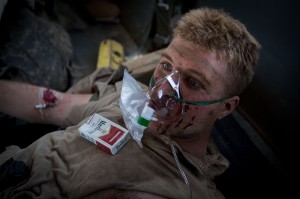
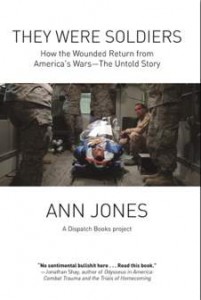
They Were Soldiers: How the Wounded Return from America’s Wars
What are the true costs of war in Afghanistan? Our guest, author Ann Jones has written an impactful book titled They Were Soldiers: How the Wounded Return from America’s Wars, it chronicles a world mostly hidden from the public. Ann Jones has spent nearly a decade working with Afghan civilians and writing about the effects of war on their lives but in the last couple years, she focused on the human toll on and off the battle field as U.S. soldiers return back from war zones with permanent mental damage, missing limbs or as quadruple amputees.
Ann Jones:
- I live in Norway where peace is taken for granted as it is in Europe.
- The United States looks crazed, the way we send our forces out all over the world, are always looking for a fight.
- Any unit of any size has a special unit within it that does mortuary affairs because all combat units are losing soldiers all the time and even soldiers who never leave base may be victims of this war. Suicides for example.
- The job of the soldiers assigned to mortuary affairs is to protect the other soldiers from knowledge of those deaths.
- Their job is to go out and retrieve the pieces of soldiers who very often in Afghanistan have literally been blown to pieces and bring those body parts and remains back to the base, to thier little secret part of the base and try to match up and put them in “transfer cases.” – to transfer them home to Dover, Delaware where they are repackaged, gussied up to be put in coffins and sent on for families for burial.
- Landstuhl Regional Medical Center is very close to Ramstein Air Base in Germany. There are special air ambulance services that go out from there to Africa, to Asia to pick even individual casualties. The individuals are often members of the CIA or private contractors or military special ops people.
- The suicides have been increasing year by year. Many of those suicides take place in the field. There have been a number that have been documented as a result of hazing and sexual assaults.
- A great many more take place here at home when soldiers return and find that they can’t live with themselves.
- I think what’s really troubling now is the number of soldiers and ex soldiers who aren’t really counted in this statistic who are taking their lives under the influence of opiad-pain killers, that have been pushed upon them by big-pharma.
- They’re shown to be highly addictive, particularly in young people and to be heavily implicated in suicide.
- The rate at which soldiers under treatment in the V.A. are taking their lives is what should be a national scandal.
- It’s estimated that 1 in 3 women soldiers have been the victim of sexual assault.
- Though in fact the number of male soldiers victimized is even greater. The percentage is less but the number is greater because men still represent 85 percent of the personnel in the military.
- Congress is supposed to vote on military appropriations for 2014 very shortly. Kirsten Gillebrand, the senator from New York is leading the campaign to attach an amendment to that budgetary appropriation that would remove the prosecution, the reporting and the decision about the prosecution and the prosecution itself from the chain of command and place it in the hands of specially trained military and civilian legal units.
- Who joins? It’s kids, from poor families, from dysfunctional families. Mainly from in the South and the “rust belt” and urban centers who see very little if any, opportunity for their ambitions and their idealism in their home communities.
Guest – Ann Jones, a journalist, photographer, and the author of ten books of nonfiction. She has written extensively about violence against women. Since 2001, she has worked intermittently as a humanitarian volunteer in conflict and post-conflict countries in the Middle East, sub-Saharan Africa, and central and south Asia. From Afghanistan and the Middle East, she has reported on the impact of war upon civilians; and she has embedded with American forces in Afghanistan to report on war’s impact on soldiers. Her articles on these and other matters appear most often in The Nation and online at www.TomDispatch.com. Her work has received generous support from the Radcliffe Institute for Advanced Study at Harvard University, where she held the Mildred Londa Weisman Fellowship in 2010-11, the John Simon Guggenheim Memorial Foundation (2011-12), and the Fulbright Foundation (2012). She lives in Oslo, Norway, with two conversational cats.
—–
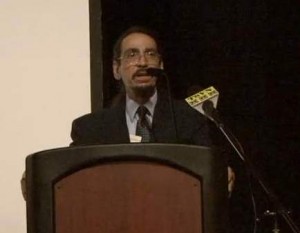

The Black Misleadership Class Versus the Movement and its Legacy
We go now to hear Glen Ford speaking at the Black Agenda Report 7th anniversary gathering at Harlem’s Riverside Church. The theme of the event was ““The Black Misleadership Class Versus the Movement and its Legacy.” Ford gives strong criticism of newly elected New Jersey Senator Cory Booker as the essence of Black misleadership, showing the many ties of the current Newark mayor to corporate America.
Glen Ford is the Black Agenda Report executive editor Glen Ford can be contacted at Glen.Ford@BlackAgendaReport.com.
——————————————————————————-
Books From Law and Disorder Hosts
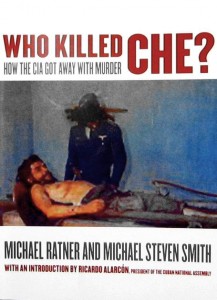
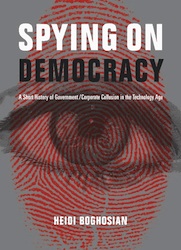
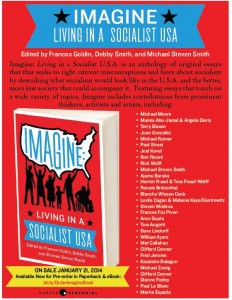
Civil Liberties, Criminalizing Dissent, FBI Intrusion, Habeas Corpus, Human Rights, Political Prisoner, Prison Industry, Supreme Court, Surveillance, Truth to Power
Podcast: Play in new window | Download
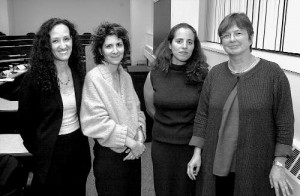
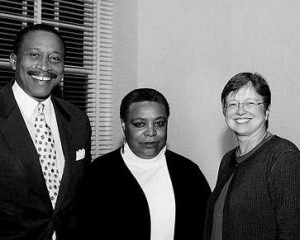
Lawyers You’ll Like: Professor Holly Maguigan
In our Lawyers You’ll Like series we’re joined by Professor Holly Maguigan, Professor of Clinical Law at the New York University School of Law, where she teaches Comparative Criminal Justice Clinic: Focus on Domestic Violence and Evidence. Professor Maguigan is an expert on the criminal trials of battered women. Her research and teaching is interdisciplinary. Professor Maguigan is a member of the Family Violence Prevention Fund’s National Advisory Committee on Cultural Considerations in Domestic Violence cases. She serves on the boards of directors of the National Clearinghouse for the Defense of Battered Women and the William Moses Kunstler Fund for Racial Justice. She is a past co-president of the Society of American Law Teachers, the largest membership organization of law professors in the U.S.
Professor Holly Maguigan:
- I was doing medieval history and I was at Berkeley. It was 1967 and Oakland stopped the draft.
- I got very interested in the anti-war politics.
- I hated lawyers. I really hated lawyers. They were boring. They talked about themselves all the time. They only had stories about their cases and how great they were and they would never post bail when people got arrested.
- The University of Pennsylvania in Philadelphia is where I stayed for 17 years.
- First I started out as a public defender. I loved being a public defender, it was the beginning and end of everything I hoped it would be.
- That’s where I met David Rudovsky and David Kairys. They were then defenders while I was a student.
- After they went out on their own, they kept inviting me to join them. I kept putting it off because I loved being a defender so much.
- In Philadelphia there was much more actual litigation, not just motion litigation there’s a lot of that here in New York City but actual trials.
- You had a sense, there was an analysis that people were doing life on the installment plan and you needed to do what you could to kick them loose any particular time.
- It was a community in its own odd way and I found it difficult to leave it.
- I was doing major felonies within a couple of years.
- David Kairys was very focused on constitutional litigation and government misconduct. He did the Camden 28 which was a big draft resistance case.
- My interest was more into criminal defense.
- Grand juries (all over the country) convened to investigate the alleged transportation of Patty Hearst by the SLA from California where she had been captured.
- He was a killer. (Frank Rizzo) There was no question. More people died in police actions before or since.
- I don’t mean to suggest that all the police started out as homocidal. This was a situation which from the top down came the message if you’re a good cop then you’re going to take people out however you think you need to.
- I knew about race and class bias in the court room as much as a white woman who was middle class could know.
- I was just blown away by what happens when you add hatred of women to hatred of black people and hatred of poor people.
- Judges would go by me in the hall and say Maguigan, ahem, you didn’t give me anything this Christmas, not even one lousy bottle, you’re not getting any assignments.
- Judges would do things, like open the drawer in their chambers, and there would be wads of bills, and they’d let you know.
- I developed a specialty on women who kill men.
- In the early eighties a group in Philadelphia called Women Against Abuse began working and they did advocacy for battered women accused of crime and meant a huge difference.
- The battered women cases I was working on were quite consuming because people then didn’t know very much in how to try these cases.
- The judges expected you to plead insanity or guilty. Reasonable doubt was a consideration at sentencing not at trial.
- There were cases that did require teams. There was no question.
- I wanted to be in court. I wanted to be in the presence of that conflict between the authorities and regular people.
- I went to NYU where I taught in the criminal defense clinic for many years.
- To see students react to the great stories their clients have is just amazing.
- SALT (Society of American Law Teachers) is about who gets into law school, what they learn and who teaches them. It’s about access to justice. It’s about relating to law school as a place where you train people to do social justice. SALT’s focus is on students and teaching.
- Holly Maguigan to be honored by Society of American Law Teachers.
Guest – Professor Holly Maguigan teaches a criminal defense clinic and one in comparative criminal justice as well as a seminar in global public service lawyering and a course in evidence. She is an expert on the criminal trials of battered women. Her research and teaching are interdisciplinary. Of particular importance in her litigation and scholarship are the obstacles to fair trials experienced by people accused of crimes who are not part of the dominant culture. Professor Maguigan is a member of the Family Violence Prevention Fund’s National Advisory Committee on Cultural Considerations in Domestic Violence cases. She serves on the boards of directors of the National Clearinghouse for the Defense of Battered Women and the William Moses Kunstler Fund for Racial Justice. She is a past co-president of the Society of American Law Teachers, the largest membership organization of law professors in the U.S.
——————————————————————————-
Books From Law and Disorder Hosts



Civil Liberties, Criminalizing Dissent, Extraordinary Rendition, FBI Intrusion, Guantanamo, Habeas Corpus, Human Rights, Political Prisoner, Prison Industry, Supreme Court, Surveillance, Targeting Muslims, Torture, Truth to Power, War Resister
Podcast: Play in new window | Download
Updates:
- Judge Leon Rules That NSA Meta Data Collection Is Likely Unconstitutional.
- Michael Ratner: It Could Be The Deathknell For This Kind Of MetaData Collection
- Ed Snowden’s Response To Judge Leon’s Decision
- Ed Snowden’s Open Letter To The People Of Brasil
- A Christmas Card From Chelsea Manning
- Guantánamo Five: Military Commissions – Their Torture Memories Are . . Classified.
- First Commander Lenhardt: Guantánamo Should Never Have Opened
- American Studies Association Supports Boycott Of Israeli Academic Institutions
——
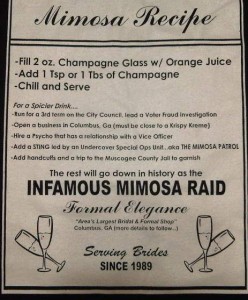

Over Policing of America: The Criminalization of Everyday Life
In his recent article titled Over Policing of America, attorney Chase Madar outlines a familiar narrative such as the militarization of police, stop and frisk, and how students get swept into the school to prison pipeline. The pattern is clear and who benefits is obvious in the list of over policing examples compiled by our returning guest, such as criminalizing immigration and how simple economic transactions are closely scrutinized by under-cover police.
Attorney Chase Madar:
- I’m hoping this new term will enter the national lingo; over-policing.
- What I wrote about is how the police paradigm has entered the DNA of social policy across the board in the United States in matters that a generation ago would not require police or prosecutors or criminal law, now suddenly do.
- That’s in education, in immigration, in family law, even how we regulate the economy.
- All of these spheres, domains of everyday life are increasingly regulated by police and prosecutors.
- A creeping police state. We need to take a very sobering look at how we’re governing ourselves and how criminal law is displacing and devouring all other kinds of social regulation.
- You see this more and more disciplinary matters in schools get outsourced to police departments.
- Police people are trained to respond to crimes, and to respond to everything as a crime. That’s the nature of police.
- When you send police into a school, the crime is going to sky rocket.
- Even the way we regulate our economy is suffering from an overdose of criminal law and police powers.
- What we have frequently is white collar work getting criminalized by a mare’s nest of criminal laws that are very complex, very difficult to understand.
- It’s not like we have a great financial system that was abused by a few bad apples. We have a really crappy system that’s legal because these people write the laws.
- Immigration law was mostly under the domain of administrative law with milder penalties, civil penalties.
- We’re kidding ourselves if we pretend that’s somehow aberrational.
- Although our political class seems incapable of doing anything constructive about it, they are very adept at channeling all fears about security in any sense into criminal law crack downs and ratcheting up the police state.
- Our incarceration rate is three times higher than the old East Germany.
- I think we need to switch very swiftly to alternative ways of social policy in holding our society together other than throwing cops and prosecutors at it.
Guest – Attorney Chase Madar , a TomDispatch regular and author of a new book, The Passion of Bradley Manning (OR Books). Madar tweets @ChMadar. He’s a contributor to the London Review of Books and Le Monde diplomatique and the author of a new book, The Passion of Bradley Manning (OR Books).
——————————————————-
Books From Law and Disorder Hosts



CIA Sponsored Terror, Civil Liberties, Criminalizing Dissent, FBI Intrusion, Habeas Corpus, Human Rights, Supreme Court, Surveillance, Truth to Power, War Resister
Podcast: Play in new window | Download
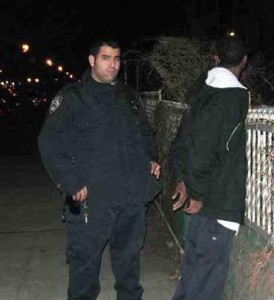
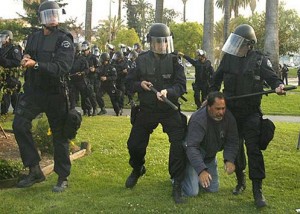
NYPD Chief Bill Bratton – Broken Windows – Stop and Frisk
New York City Mayor-elect Bill de Blasio announced Mr. Bratton’s appointment as the new commissioner of the New York Police Department this month. He lauded Mr. Bratton’s work in Los Angeles, saying he could police fairly while still bringing down crime. After a 7 years leading the Los Angeles Police Department there’s been an increase in police presence among the homeless in and around Skid Row, plus excessive stops of pedestrians especially in poorer communities.
Attorney Carol Sobel:
- Broken Windows is a program that Bratton began in New York with a sociologist that he worked with.
- It’s basically the theory that if you stop the petty issues, you prevent greater crime.
- I use that example because in Los Angeles that’s exactly what they started doing – arresting people on Skid Row for littering, and littering could be the ashes that fell off their cigarette.
- It didn’t reduce crime, it created a statistical reduction.
- Bratton used to do a radio show Ask The Chief on one of the radio stations (In Los Angeles)
- I sued him early and often on Skid Row in particular.
- They would stop every black man on the street, or someone they thought was homeless, cuff them, twist them. If they didn’t have a good ID they’d take em to the station.
- I do think that Bratton was good for the department at that time, and that he changed, from the time that he came til he left.
- We had one of the biggest police assaults on a peaceful crowd on May 1, 2006.
- The one thing I think is fair to say about Bratton is that he will take direction which is one thing he didn’t do before.
Guest – Attorney Carol Sobel, is a solo practitioner in Santa Monica, California. Prior to going into private practice, she spent 20 years working in various positions for the ACLU, including as Senior Staff Attorney for the last seven years she was at the ACLU. She has been involved in numerous significant cases in federal and state courts. Carol serves as local counsel for the Center for Constitutional Rights in Humanitarian Law Project v. Ashcroft and served on the Rampart Blue Ribbon Panel. Since 2002, she was named as one of Los Angeles’ Super Lawyers for Civil Rights. Attorney Carol Sobel is a graduate of the Peoples College of Law.
——
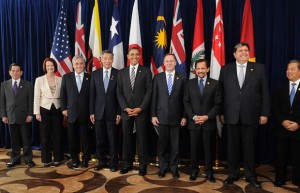
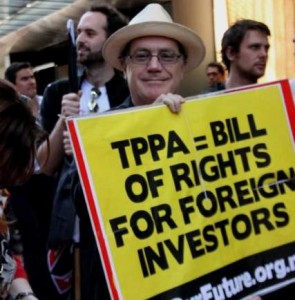
Wikileaks Reveals Quiet Plans and Secret Meetings Behind Trans-Pacific Partnership
Have you heard about the Trans Pacific Partnership? We mentioned it in an update a couple weeks ago. It’s described as an agreement to enhance trade and investments, promote innovation and economic growth among 12 trans-Pacific countries. Those countries include the US, Canada, Japan, Mexico, New Zealand, Australia, Brunei, Chile, Malaysia, Peru, Singapore and Vietnam. As negotiations and talks continue among the countries, much of it is done in secret including an international trade treaty that could have far reaching effects on internet services, copyright law and civil-liberties.
George Kohl:
- It masquerades as a trade deal but its really an economic integration agreement which represents 40 percent of the world’s economy and its a series of countries that circle the Pacific Ocean.
- Its secret negotiations. Unlike most negotiations where you would know what the objectives are of this trade deal. What are the objectives our country is seeking? None of that’s available.
- Congress can’t see what the text is and yet there are 600 corporate lobbyists who get to weigh in and make suggestions.
- It’s a major economic agreement that governs investment. It governs the rights of companies to sue corporations. It governs environmental regulations in our country.
- It governs health and safety regulations here. It will impact food labeling for example.
- We (CWA) were pushing a bill that said if you talk to a call center, you should know where that person works. You should be able to talk to somebody in the United States and that your information should be protected.
- A bill like that could be viewed as interfering with trade and the TPP and the trades that get negotiated would supplant the ability to implement language like that.
- They (TPP) sets up situations that already exist in which companies can sue a country for having environmental protections. Right now there are 14 billion dollars worth of suits where companies are saying my right to gain profit was obstructed by these environmental or other kind of regulations.
- Why is it and who set it up where we open up a trade agreement to Vietnam which pays 20 cents an hour as a minimum wage, which only drive down our wages.
- The objectives that we have in a trade agreement is how do we promote collective bargaining? How do we create growth that benefits working people and that’s not in this picture.
- We’ve got a government that is supposed to be acting of and by the people and instead our government is acting of and by international corporate interests.
- All of this is about creating a structure that lets companies maximize profit but really doesn’t deal with people in their daily lives.
- Where we are at right at this moment is telling Congress that NAFTA didn’t work. There was a promise of 200 thousand jobs, we lost 700 thousand jobs.
- Recently we had a Korea trade deal and promised 70 thousand jobs but we lost 40 thousand jobs.
- People need to reach out to their Congress person now and say be against the Trans-Pacific Partnership.
- You have to ask why is our government acting on behalf of this company (corporations) why isn’t it acting on our behalf?
Guest – George Kohl, Senior Director at the Communications Workers of America.
——
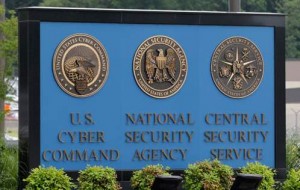

Reform Measures For MetaData Collection, the NSA and EPIC
We take a wide look on recent stories about data mining and privacy, data aggregate corporations, the legal fights to protect personal information and the NSA. Recently a Congressional inquiry revealed how local law enforcement made nearly 10 thousand requests last year for what are called “tower dumps.”
Attorney Alan Butler:
- I think that the core issues that were identified in the letter from the six companies are important issues. Especially the issue of ending bulk surveillance, of increasing transparency of the intelligence process and of improving oversight.
- There are reforms in a number of different areas. We’ve been pushing for transparency of NSA intelligence gathering in the context of criminal investigations for example.
- We’ve been pushing on the intelligence and judiciary committees of Congress and the government to provide public accountability for these programs so people can understand how they function.
- The bulk collection of meta data. . . that program needs to end.
- There’s a bill in Congress right now proposed by Senator Leahy and Rep Sensenbrenner that would end the bulk collection of telephone records if passed today.
- There’s a competing bill introduced by Senator Feinstein and other intelligence committee heads that would enshrine the current bulk collection of telephone records in law.
- Its great to have these companies on board for these reforms but at the same time we’ve been pushing for a number of years for these companies to do more themselves to protect their users.
- Housing this data alone, creates the opportunity for government surveillance in the first place.
- The answer has to be transparency and public oversight of the programs.
- The transparency reports that Google and Apple have published have been impressive documents. They’re putting forward the type of data that they collect on users and the type of data that’s turned over to law enforcement.
- Location data is uniquely sensitive in terms of telephone records because it reveals where a person is, where they go, their associations, their behaviors and can also reveal whether they’re in a private place like a home.
- EPIC is a public advocacy organization and we really seek to inform the public about current and important privacy issues.
- One area of our work is the open government field. We file FOIA requests seeking records on government programs, typically federal agencies. We’re looking at what DHS is doing, what the FBI is doing.
- I worked on a case where we were able to get thousands of records from the FBI on cell phone surveillance technology they use called the Stingray.
- It’s a technology that can be used to intercept cell phones or content.
- I believe that we can build a system where we have oversight mechanisms in place that we can all trust.
- Our organization was founded on strong encryption technology in 1990s where the NSA at the time was trying to establish the “Clipper Chip.”
Guest – Attorney Alan Butler, is the EPIC Appellate Advocacy Counsel. He manages the Appellate Docket at EPIC, including the Amicus Program, and authors briefs in significant privacy, civil liberties, and national security law cases. Recent cases include In re EPIC, United States v. Jones, Clapper v. Amnesty International USA, and Maryland v. King. Mr. Butler focuses on a range of privacy law subjects including the Foreign Intelligence Surveillance Act (FISA), the Electronic Communications Privacy Act (ECPA), location privacy, and other digital Fourth Amendment issues.
————————————————————-
Afghanistan War, CIA Sponsored Terror, Civil Liberties, Criminalizing Dissent, FBI Intrusion, Guantanamo, Habeas Corpus, Human Rights, Political Prisoner, Prison Industry, Supreme Court, Surveillance, Targeting Muslims, Torture, War Resister
Podcast: Play in new window | Download
Updates:
—–
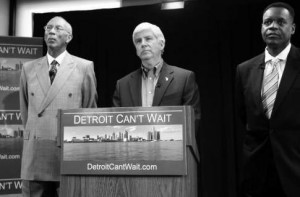
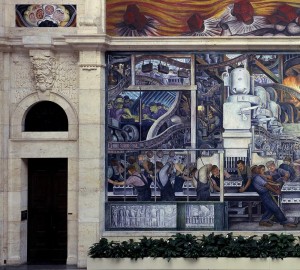
Judge Ruling Allows Detroit Bankruptcy To Move Forward
This summer we spoke with retired auto worker and activist Dianne Feeley about the plans to wipe out the pensions and health benefits of all current and retired city workers by emergency manager of Detroit, Kevyn Orr. We also looked at the history of workers in Detroit from the perspective of black workers and the broader pattern of oppression. Last week, a ruling by Judge Stevens W. Rhodes of the U.S. Bankruptcy Court allows the city of Detroit to move forward in the bankruptcy process. The cradle of the American auto industry will now be allowed to pay off debts and restore essential services.
Professor Laura Bartell:
- It is the first time that a bankruptcy judge that pension obligations constitute contractual obligations that are subject to diminution in bankruptcy.
- Although its rattled pensioners nationwide, its really not that extraordinary.
- The healthcare was never protected by the Michigan Constitution. Everyone has always known that healthcare was subject to modification by the city.
- The cuts in health care are going into effect I believe in February for city employees.
- When we’re talking about the pensions we’re talking about the retirees both the firefighters and policemen unions retirees.
- The city maintains that the plans are underfunded by 3.5 billion dollars.
- The union believes that number is vastly inflated based on projected returns that are too low. Whatever the number is its somewhere between 800 million and 3.5 billion.
- The policemen and firefighters don’t have the benefit of social security.
- You’re not talking about a lot of money going to any individual so if you cut the pension to any particular individual its obviously going to be a major cut for that individual.
- The major problem that Detroit has suffered was a vast decline in population.
- It used to be a much larger city. It’s footprint is still a very large city but the number of people living in that footprint is much smaller than it used to be.
- Among that small population there’s an even smaller number of people actually working and paying taxes.
- So the money coming in to meet the obligations of Detroit has been constantly shrinking.
- Detroit’s obligation to retirees in terms of pensions and healthcare is up at 38 percent and rising constantly. – and in addition we had severe mismanagement of city government including criminality. I’m sure everyone knows our former mayor is now in prison.
- My guess is the pensioners will be hit far less severely than the bond holders. Bond holders are making an investment and taking a risk.
- That’s what bankruptcy is about is all people who have done something to become creditors to the city and they’re not going to get what they deserve.
- That’s the problem, everybody is deserving, everybody should get paid.
- The problem is not that the governor has suddenly taken away the democratic rights of Detroit. We’ve had an emergency manager law for many years in the state of Michigan.
- Detroit is the latest and the biggest to have that happen.
- The next stage is a presentation of a plan of adjustment which he will present to creditors at the end of this month and file with the court at the beginning of January.
Guest – Professor Laura Bartell, after graduating from Harvard Law School, where she was an officer on the Harvard Law Review, she clerked for Judge Alvin B. Rubin of the U.S. Court of Appeals for the 5th Circuit in New Orleans. She then entered practice in New York where she became a partner in Shearman & Sterling, specializing in bank financing and bankruptcy work. She is a member of the American Law Institute and American Bankruptcy Institute and has published articles on bankruptcy topics, federal court-awarded attorneys’ fees and costs, and the attorney/client privilege and work-product doctrine. She teaches Property, Secured Transactions, Bankruptcy and Creditors’ Rights and Effective Oral Communication for Lawyers.
—–
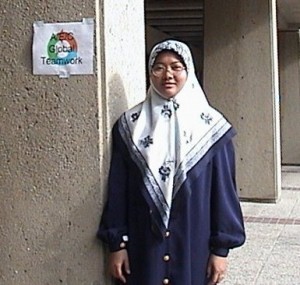
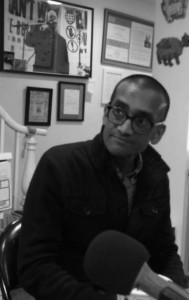
Terrorist Watch Lists and No Fly Lists Cases
How do governments compile lists called no-fly lists of individuals often placed on terrorist watch lists? As we’ve seen, the predictions about individual behavior of Muslims, Communists or Japanese-Americans have often been wildly inaccurate and cause a great deal of harm to these communities. Today to discuss the no-fly list and a recent case proceeding through the courts is returning guest Shane Kadidal senior managing attorney of the Guantánamo Global Justice Initiative at the Center for Constitutional Rights in New York City.
Attorney Shane Kadidal:
- There are broad watch lists and there are lists that people are more familiar with in concept and that’s what being litigated out in California, somebody placed on the no-fly list.
- There are two kinds of no-fly lists, there’s the selectee list where some where on the order of tens of thousands of people are designated for additional security checks when they go through the TSA.
- Then there’s the smaller list which contains several thousand names that sometimes you hear referred to as the no transport list. That’s people who can’t board a flight under any circumstances.
- The US shares its list at times with other countries. We don’t know how much sharing exists.
- The case in California is super interesting because the person who got stopped doesn’t seem like the kind of person that would get stopped except for the fact that she wears a hijab.
- The Terrorism Screening Center is responsible for putting people on the list.
- The interesting thing about this case is that daughter that was put on the list was 14, eight or nine years ago and is now a lawyer in Malaysia and was supposed to testify and was told by Malaysian airlines you are on the no-fly list.
- She’s seeking damages because she couldn’t fly back. This is really the first case to get to trial basically.
- The ACLU has a challenge to which kind of a pure due process challenge case in a case called Lateef v Holder.
- You got put on a list and there’s no real process for challenging those facts.
- If its an accidental match, somebody has the same name as you, or close to you. You can go through this challenge procedure called TRIPP.
- If you win your challenge, they’ll give you a number that you can enter in when you buy your plane ticket.
- CCR along with the Clear Clinic at CUNY Law School filed a case at the beginning of October. The gist of it is that people will end up on the no-fly list and if you complaint about it the FBI will say, if you talk to us you can be taken off the list if you agree to work as an informant on the Muslim community.
- What’s interesting about the couple thousand names (no-fly list) which is much smaller than the number which are on these lists intended to intercept terrorism finance like the list the treasury department maintains like a 500 plus page phone book.
- You can imagine that there might be some logical rationale behind having a short list of people who get a little scrutiny and hope it has more due process than the selectee list has now.
- But the fact that there are some people who are not allowed to fly under any circumstances with any level of search scrutiny that doesn’t seem to make any sense and seems to fit very neatly into our complaint.
- I question if this list can make rational sense.
- Typically if you’re on the no-fly list you get turned away. Typically you don’t get arrested.
- OFAC list, is sort of a list of parties you’re not allowed to do business with. It combines not only sanctions directed at whole countries but also the variety of sanctions directed at terrorism finance.
- This is just like other cases where secrecy is at the core of the defense of the program.
Guest – Shane Kadidal, senior managing attorney of the Guantánamo Global Justice Initiative at the Center for Constitutional Rights in New York City. He is a graduate of the Yale Law School and a former law clerk to Judge Kermit Lipez of the United States Court of Appeals for the First Circuit. In his eight years at the Center, he has worked on a number of significant cases in the wake of 9/11, including the Center’s challenges to the detention of prisoners at Guantánamo Bay (among them torture victim Mohammed al Qahtani and former CIA ghost detainee Majid Khan), which have twice reached the Supreme Court, and several cases arising out of the post-9/11 domestic immigration sweeps. He is also counsel in CCR’s legal challenges to the “material support” statute (decided by the Supreme Court last term), to the low rates of black firefighter hiring in New York City, and to the NSA’s warrantless surveillance program.
——————————————————————————
CIA Sponsored Terror, Civil Liberties, Criminalizing Dissent, FBI Intrusion, Habeas Corpus, Human Rights, Political Prisoner, Surveillance, Truth to Power, War Resister
Podcast: Play in new window | Download
Updates:
- Socialist Wins Seat on Seattle City Council
—–
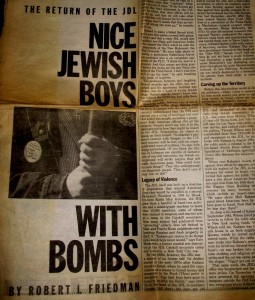
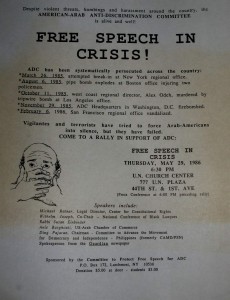
Alex Odeh Case – Abdeen Jabara
On October 11, 1985, prominent Palestinian-American leader Alex Odeh was killed by a pipe bomb at the offices of the American-Arab Anti-Discrimination Committee, where he worked as the group’s western regional director in Santa Ana, California. Now, the FBI and Justice Department are being urged to renew its investigation into this shocking political murder. history.
Very quickly, the FBI named the militant Jewish Defense League, or JDL, as a focus of its investigations. Yet, more than two decades later, no one has been questioned or indicted for Odeh’s murder. Today we welcome back civil rights attorney Abdeen Jabara who helped found the American-Arab Anti-Discrimination Committee. He joins us to talk more about the reopening of this political murder investigation 28 years later.
Attorney Abdeen Jabara:
- The FBI says the case has not been closed and its an ongoing investigation.
- We’re talking about 28 years after the fact.
- Congresswoman Sanchez from Orange County, California from the 46th district wrote a letter to Eric Holder and to the FBI requesting some closure on this case and she got back a very unsatisfactory reply.
- She has joined with several other Congress people, John Conyers of Michigan and others to ask for hearings in the Judiciary Committee of the House on this case.
- There have been many ups and downs in the case since Alex was killed.
- Several people have been arrested in the case but not for the assassination of Alex Odeh.
- The JDL was created in 1968 by Meir Kahane.
- Chairman of our organization, Jim Abarez was contacted by the FBI and was told that he, myself and two other individuals were placed on a hit list by the Jewish Defense Organization.
- Prior to the killing of Alex Odeh, there were a number of incidences. We had our regional office in Boston burned. We had attacks here at our office in New York City. A number of telegrams, threatening calls, all types of harassment was occurring on a daily basis and then Alex Odeh was killed.
- He left 3 beautiful daughters and a widow in Orange County and they are active to this day and his brother is active in trying to maintain the pressure to keep this case alive and bring justice about.
- The Israeli government has not been cooperative with this FBI investigation.
- The fact of the matter is that Arab-Americans have little or no political power in this country.
- I think there is a possibility of movement and we need to have people contact Eric Holder’s office. The FBI is part of the Justice Department, the FBI is responsible for investigating these cases.
Guest – Attorney Abdeen Jabara, co-founder of the American-Arab Anti-Discrimination Committee.
——
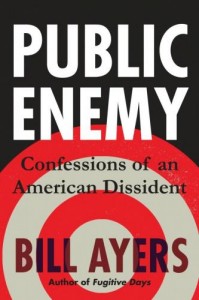
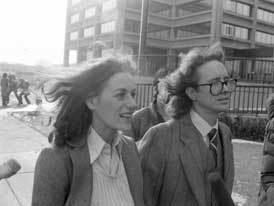
Public Enemy: Confessions Of An American Dissident
A sequel to Fugitive Days, Public Enemy: Confessions of An American Dissident chronicles Bill Ayers life after the Weather Underground. Since his memoir Fugtive Days was published September 10, 2001 about his life in Students for a Democratic Society and later the Weather Underground, Ayers was under attack by right wing media which tied him to the catastrophes of 9/11 based on a New York Times interview quote. Bill Ayers became famous in the early 1970s as a leader of the Weather Underground; he is known to have participated in the bombings of New York City Police Department headquarters in 1970, the US Capitol building in 1971, and the Pentagon in 1972. He surfaced in the mid-1970s, when the government charges against him were dismissed for prosecutorial misconduct.
His new book Public Enemy starts during the 2008 presidential debate in which his neighbor Barack Obama in the Hyde Park community of Chicago was confronted about their association. The book also describes how Ayers and his wife Bernadine Dohrn rebuilt their lives as public figures. Ayers became a professor of education at the Chicago campus of the University of Illinois.
Bill Ayers:
- The American dissident part came pretty naturally. I grew up in the heat of the civil rights movement.
- I came of age when the world was on fire.
- In our own country it was the black freedom movement finding the moral agenda for the whole nation and I found myself drawn inexorably into it.
- The public enemy part comes from continuing to live a long life as a radical, and as a public radical and not being willing to trim my sails or my revolutionary hope stream spirit.
- Come the 2008 election, the national election. I was thrown unwittingly, unwillingly into that national campaign.
- The narrative that Barack Obama palled around with terrorists, that Barack Obama had a shady Palestinian friend or the narrative that he hung around with a black nationalist preacher, that narrative was spun by Hilliary Clinton long before Palin and McCain picked it up.
- The ole American favorite past time, guilt by association, that’s how I became a public enemy.
- I was a kid coming out of a privileged background. I went to the University of Michigan and I couldn’t sleep for about 2 years because the world was on fire.
- I was arrested opposing the war in Vietnam. I spent ten days in county jail and there I met a man whose wife just founded a freedom school.
- I marched out of jail into my first teaching job. For me teaching was always linked deeply with the quest for social justice. I returned to teaching in 1978, after our first child was born.
- The ideal is that every human being is of incalculable value in a country that found on the idea that we are all equal.
- What we ought to be demanding is an educational system that creates free people, people with minds of their own, people who are able to interrogate the world before them.
- In Nazi, Germany, they had wonderful schools that taught amazing literature and music, arts and so on, and they also had a system based on obedience and conformity and doing what you’re told and following the rules. That’s a recipe for catastrophe in any free society.
- What I’ve spent most of my adult life doing is fighting for an educational system where the fullest development of each becomes the condition for the full development of all and the fullest development of all becomes the condition for the full development of each.
- Who are you? How did you get here? Why are you in the freedom movement? What are you trying to accomplish and where do you want to go? The message of those questions are revolutionary.
- The Highlander Folk School
- We don’t have a king that can save us. We are sovereign.
- Those of us who still think of ourselves as revolutionaries living in difficult times, dark times, have to find ways to become movement builders. Movement building is on the agenda. Bringing those together who are working in various fields to change the frame of the discussion.
Guest – William Ayers, Distinguished Professor of Education and Senior Bill Ayers University Scholar at the University of Illinois at Chicago (retired), member of the executive committee of the Faculty Senate and founder of both the Small Schools Workshop and the Center for Youth and Society, taught courses in interpretive and qualitative research, oral history, creative non-fiction, urban school change, and teaching and the modern predicament. A graduate of the University of Michigan, the Bank Street College of Education, Bennington College, and Teachers College, Columbia University, Ayers has written extensively about social justice, democracy and education, the cultural contexts of schooling, and teaching as an essentially intellectual, ethical, and political enterprise.
——————————————————————–
























